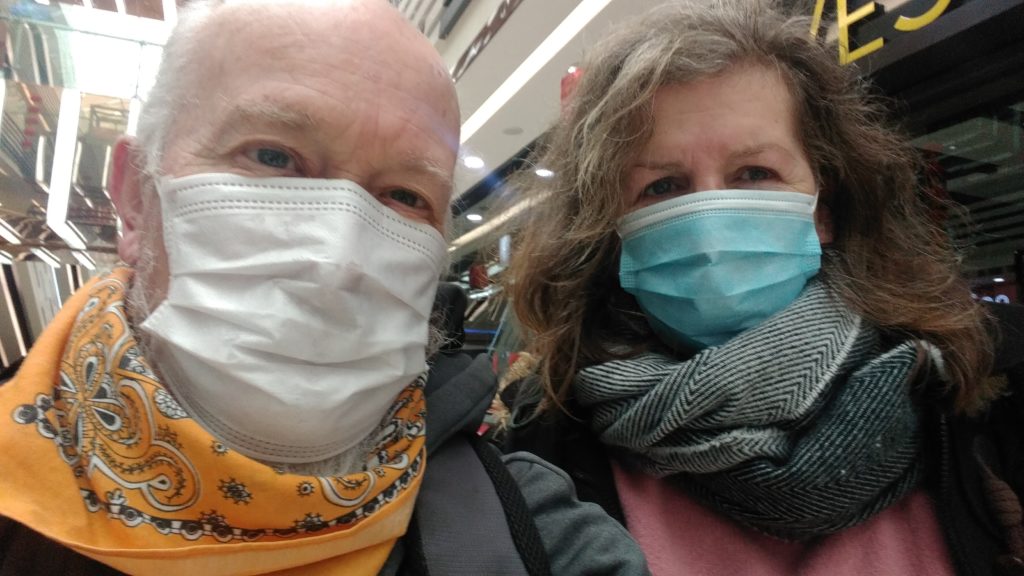
I live in Wuhan. Few had ever heard of the city before last week. Now it sits at the center of the worldwide coronavirus scare.
Thursday morning, January 23rd, the news that Wuhan closed all public transportation in, out, and around the city came out, setting the city into a coronavirus panic.
Realizing you can’t go anywhere can unnerve the calm and rattle the nervous. But we’re all germ-infested suspects so no one wants to see you anyway.
I have been a teacher for six years at Jianghan University in this sprawling Chinese city called the Chicago of China. I resigned prior to the outbreak and planned to return to my hometown, Columbus, Ohio, next week. I guess that will have to wait.
Here’s my story.
The lead up
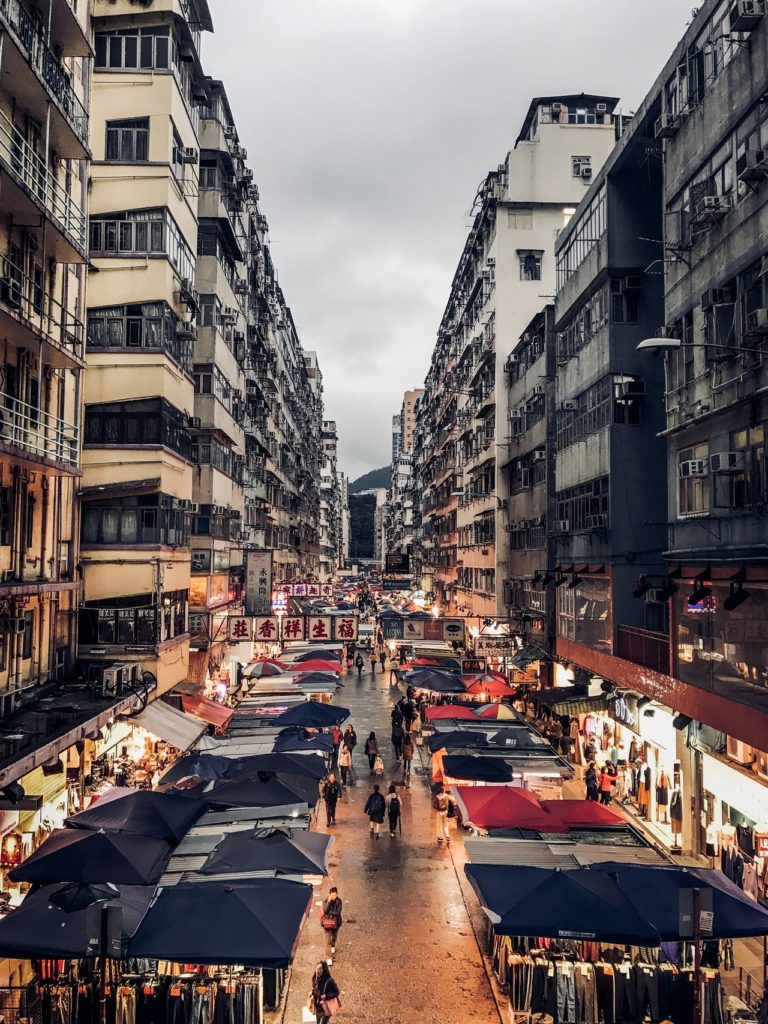
On January 5th, my brother, Patrick who lives in Ohio, told me about a mysterious virus in Wuhan.
“Oh there are stories like that all the time in China. I’m not worried,” I crowed. “It’ll be fine.”
Within minutes MSN.com reported via the Associated Press that Hong Kong created a “serious response” level for a mysterious disease brought from the mainland Chinese city of Wuhan.
Officials denied the news as “rumors” to a university colleague of mine. She believed the source saying “It is just some people on social media who started rumors.”
No one feels free to talk about sensitive issues in China because publishing or forwarding “false” information is a crime. It had been reported the government punished eight people for talking about the virus.
Virus news from abroad kept percolating over the next two weeks, with each report sounding more ominous than the last.
I had been promoting my new book during this time and working toward leaving Wuhan in early February for a trip to Thailand or Cambodia before heading back to Ohio. I’ve enjoyed China and felt no hurry to leave.
Things fall apart
Things began to quickly fall apart on Monday, January 20.
The coronavirus punched the city in the face with lightning speed and impact. Wuhan people went from planning holiday travel to lock down in three days.
Here’s what I saw.
Monday, January 20: The No. 3 Wuhan Metro subway glides to a stop at Sixin Boulevard. A man dressed in black jumps into the subway car with a bullhorn, yelling in Chinese to leave the train.
We all leave the car quickly, without a word. People on the platform exchange nervous glances, wondering if coronavirus had been detected on the train.
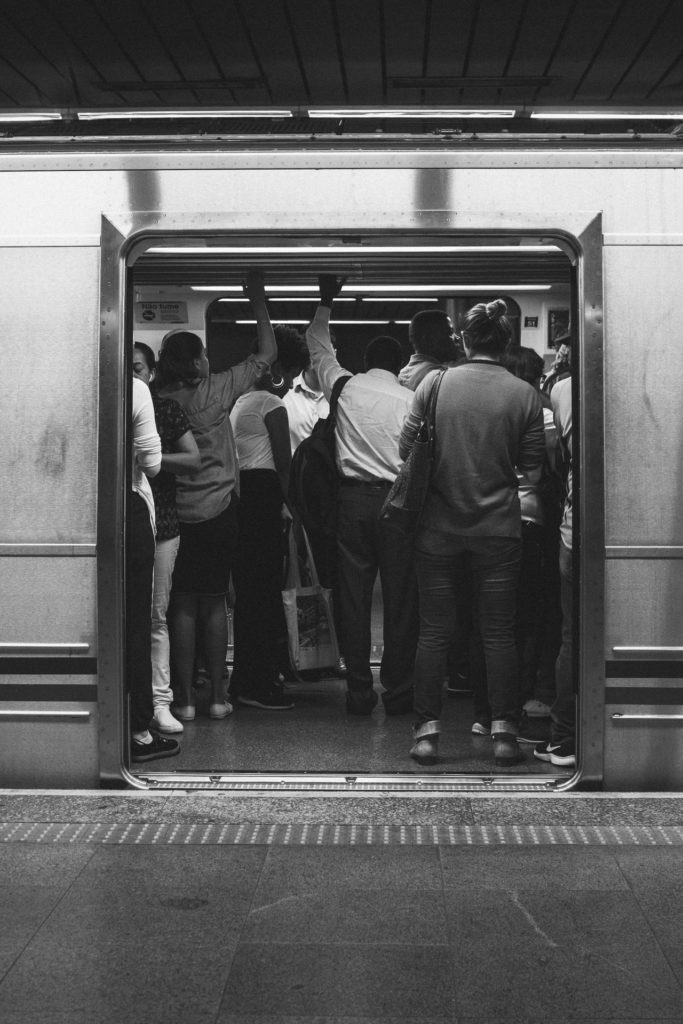
Tuesday, January 21: Peter, a Chinese friend, tells me he cannot go visit his brother’s family. Villages along the route to his brother’s house will not permit cars from Wuhan to enter. He said he wouldn’t go anyway.
“I don’t want my brother to get hatred from his friends or neighbors, so I decided to stay in Wuhan,” Peter explained.
Wednesday, January 22: The school cancels its teachers’ New Years’ holiday luncheon. They instead bring us packages of frozen dumplings, rice balls, hand disinfectant, face masks, and a holiday banner.
Later that day a post on WeChat, the Chinese social media giant, by Asad Malik shows an official-looking document from the Organization Department of the local Communist Party banning travel. He asks, “Is it true? Can no one get out of Wuhan?”
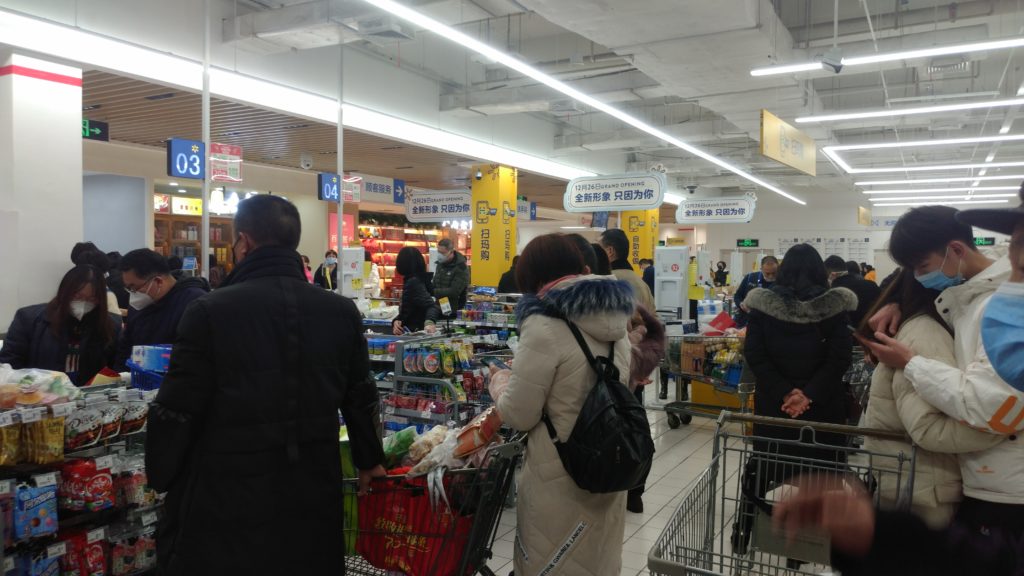
Thursday, January 23: I wake up to find Asad’s document true. I live in a quarantined city with no public transportation. My first thought is “get some food.” My friend, Xing, agrees and writes “People are crazy, going to the supermarket for everything.”
That morning my friend, Liz, and I go to the WalMart at the Wanda Mall near my apartment. The store, while crowded, remains calm. The rest of the mall is empty.
The green vegetables are sold out but most other items remain well stocked. The store manager does checkout in my long line. I thank him for his effort.

A social media rumor breaks out that people should stay inside between 5 pm and 9 pm because the government’s dropping disinfectant from airplanes across the city. After fierce debate, the rumor proves false.
Friday, January 24: New Years’ Eve in China but it doesn’t feel like a holiday as we sit in silence.
Panic starts at home
I’m an American, caught at the center of this chaos in a southern Chinese megacity that has gone from a comfortable, well-run city to the verge of being freaked out.
I’m not afraid to say I’m worried. We live most of our lives managing risks the best we can but living in a virus-infected, Chinese city of 11 million frightened people creates a whole different environment for daily living.

Much like charity, panic starts at home. All sorts of cataclysmic scenarios play out in your head, all silent and scary.
The fear of getting sick envelops everyone. My own mind jumps from all is well to fear. I continually wonder, “Is my throat getting sore? I think it is.” Every cough brings worry to my 65-year-old body.
Nobody knows the endgame of the coronavirus and how Wuhan will deal with it and neither do I. Right now, panic is our principal response.
Social media's story
An eerie silence pervades the city during the country’s biggest holiday, the Chinese New Year.
But WeChat lays out the story on multiple fronts. Here are random comments from a few of my 630 mostly-Wuhan contacts.
Judy, a Jianghan University employee writes in a Boston Strong style the city’s new motto, “Wuhan refueling.” While another writes about a social media backlash against Wuhan, “Many people on Weibo have prejudice against Wuhan.”
Masks, if you can find one to buy, are required. I cannot leave or enter the university without one.
Bia writes, “Ignorance is not an obstacle to survival. Arrogance is. More terrible than panic is pride.”
Apparently older Chinese are pushing back against the masks. Wei asks, “Do you have a good way to persuade the elders to wear masks?” Four elder Chinese men passed me on the street yesterday proudly walking without masks.

With every disaster comes opportunity. Echo tells us, “I have to say the price of face masks on Taobao have gone up fast, fast, fast.” Xu says the price for 25 paper masks is close to $100 USD. The hospitals face acute shortages and many WeChat users ask for donations of protective materials.
A new worry sprung up today with many social media posts wondering what to do with the large number of disposable masks with saliva, bacteria, and germs. The posts recommend burning them.
A fearful post from -_-, “Yesterday I had a low fever. I felt like I lost all hope and I was scared to death.”
Someone asked: “Are young people afraid of death? I say we are not afraid of death but afraid to take others with us.”
Travel to and from Wuhan has stopped. Le.Li says “The Hankou Railway Station is deserted.” Hundreds of thousands of passengers usually go through the station on a single New Year travel day. Predictions of three billion separate trips during the holiday season won’t be close.
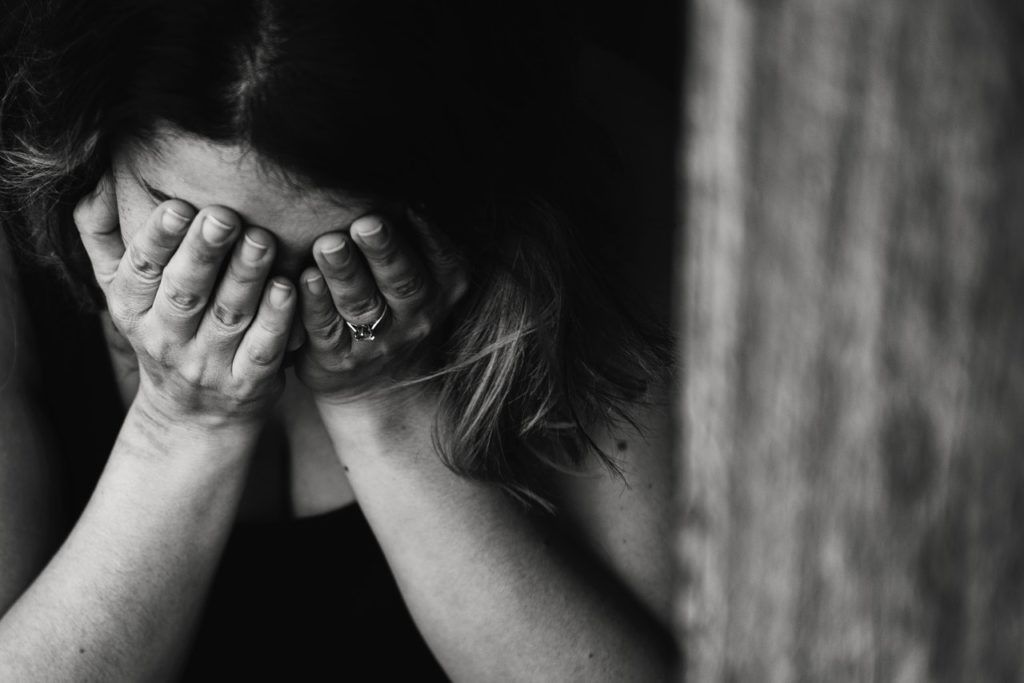
Nobody wants to see anyone from Wuhan. Zboys writes about his return home, “The village chief took the doctor to my house for special ‘sympathy’ and also sent a thermometer, a mask, and a warning not to go out. Am I in quarantine?”
Joy writes, “We have an infection in our neighborhood,” followed by three red-faced emojis.
YueMoon wonders, “Is everything gonna be ok?”
1T tries to convince, “I want you to be OK. Don’t worry. Don’t panic.”
Judy wrote, “Please stay away from Wuhan people. Just don’t want to bring panic to those who still care about us”
SierraSuun writes: “In my lifetime I never imagined a city would be sealed away, far away from my home. I feel panic. I am powerless.”
YY tells about the impact on her family, “My mom ran upstairs and knocked on the door and called my dad and said ‘Why don’t you open the door?’”
The Twilight Zone
Wuhan seems like it stepped into a Twilight zone episode. Rod Serling said this in the show’s first episode “Where is everybody?”
“The place is here, the time is now, and the journey into the shadows that we’re about to watch could be our journey.”
Eleven million people in this usually bustling 3,500-year-old city sit silent in the shadows. People hunkered down for the journey, waiting to cough or feel a fever. It’s their journey and mine. It might be yours too.
I’ll keep you updated.
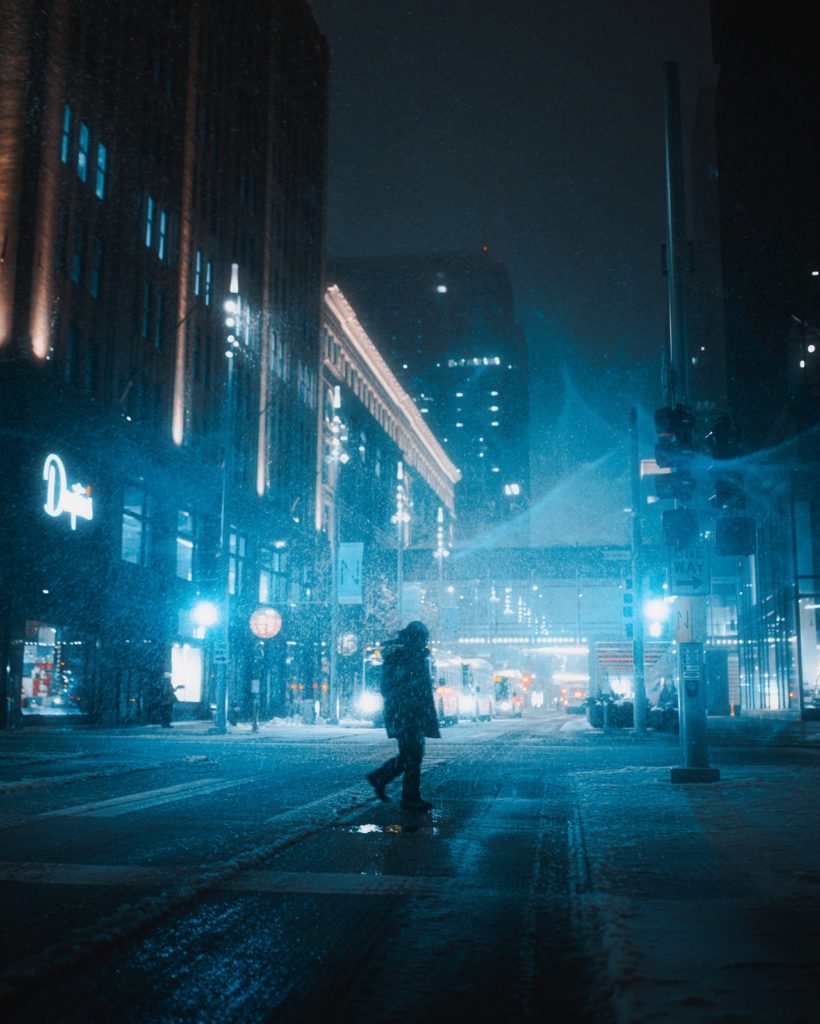
John McGory is an author and owner of the American Speech Company. His book, Seeking Balance: The ultimate guide to English-speaking for the shy, foreign, or frustrated, is available on Amazon.
